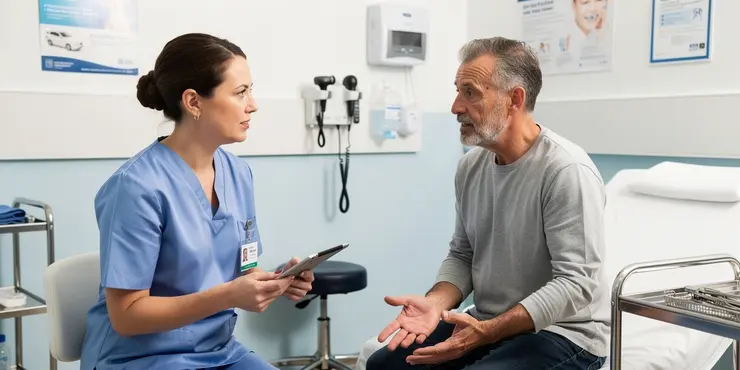
Find Help
More Items From Ergsy search
-
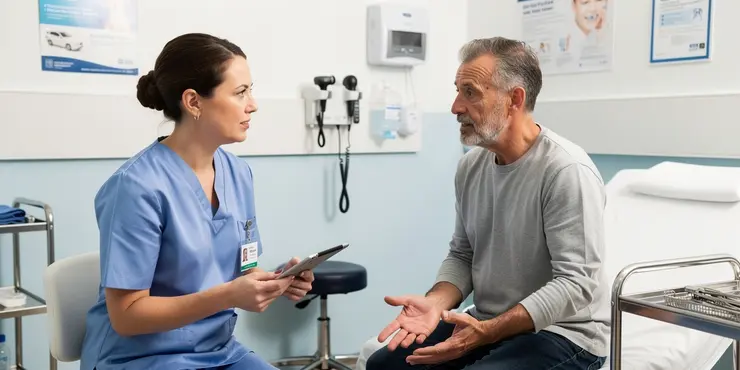
What are the main types of sleep apnea?
Relevance: 100%
-
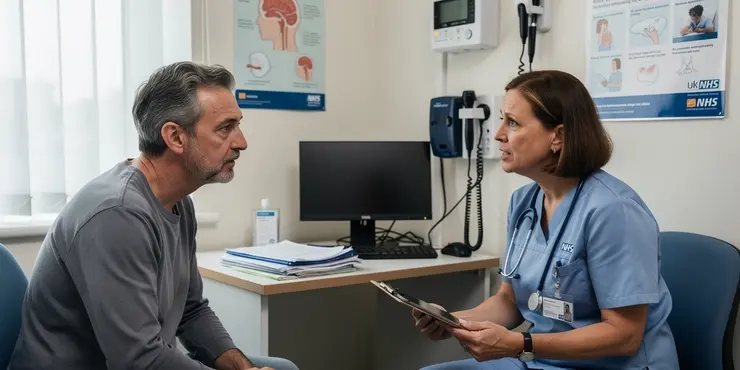
What is sleep apnea?
Relevance: 92%
-
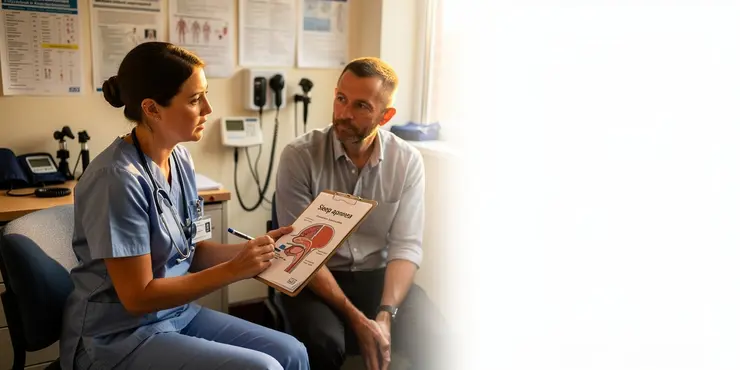
What is sleep apnoea?
Relevance: 92%
-
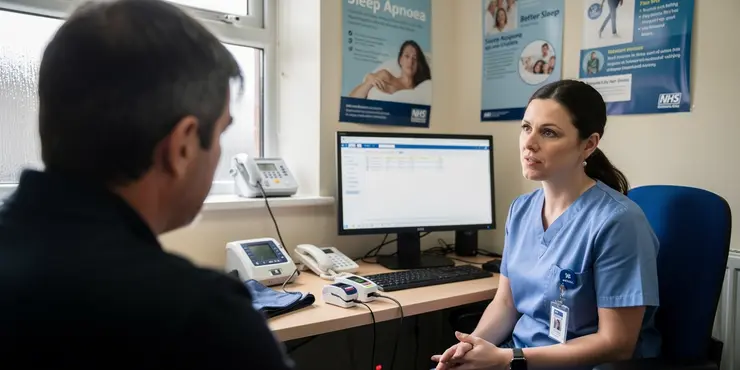
How common is sleep apnea?
Relevance: 87%
-
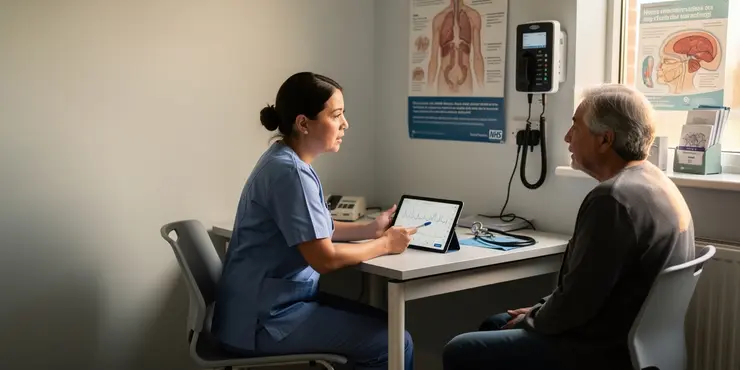
Can sleep apnea be cured?
Relevance: 87%
-
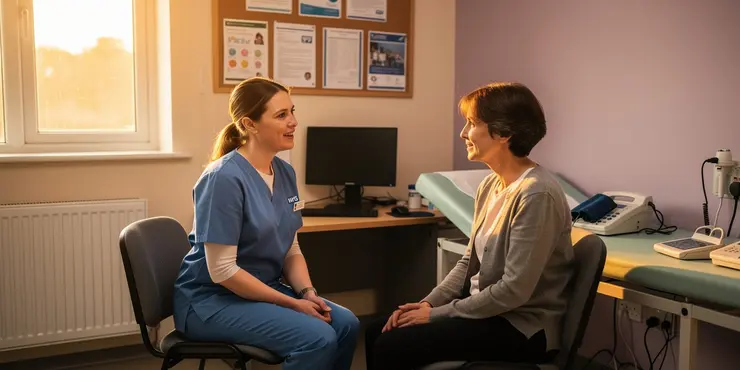
Why is sleep apnea dangerous?
Relevance: 87%
-
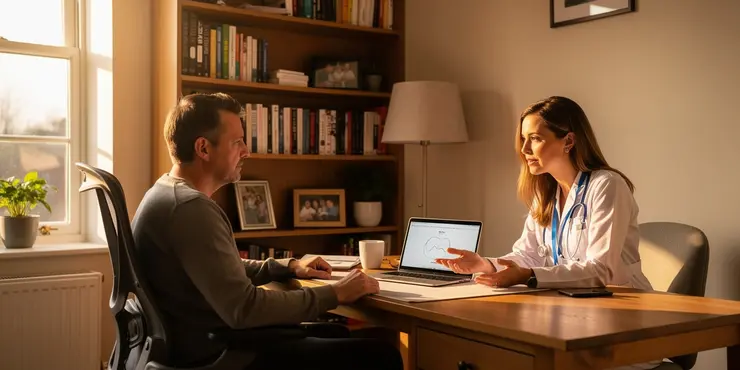
How is sleep apnea diagnosed?
Relevance: 85%
-
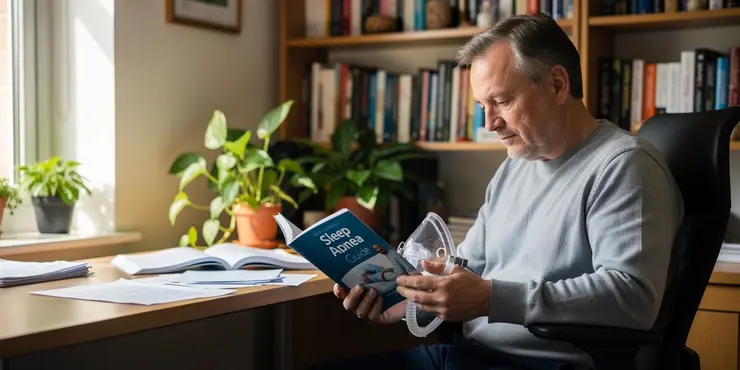
What is complex sleep apnea syndrome?
Relevance: 83%
-
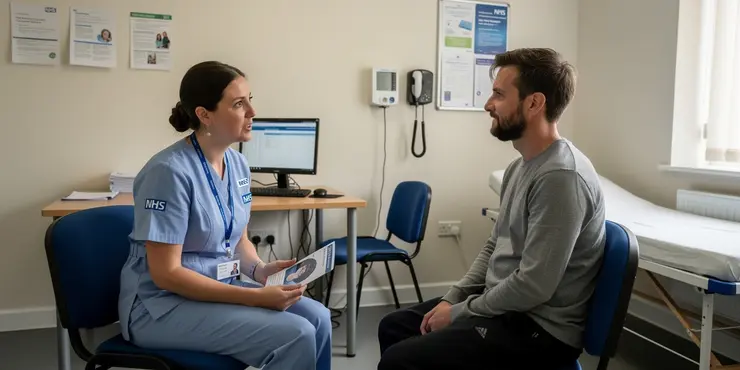
Is CPAP the only treatment for sleep apnea?
Relevance: 83%
-
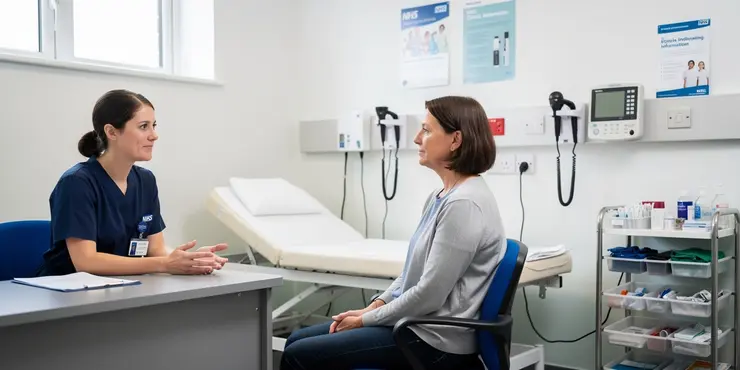
What is complex sleep apnea syndrome?
Relevance: 82%
-
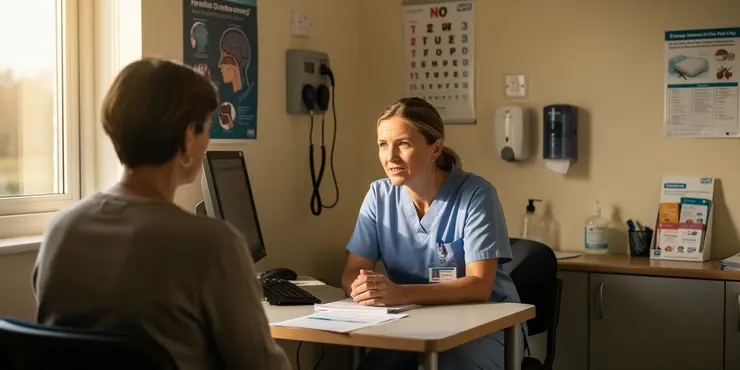
Does sleep apnea occur only in adults?
Relevance: 82%
-
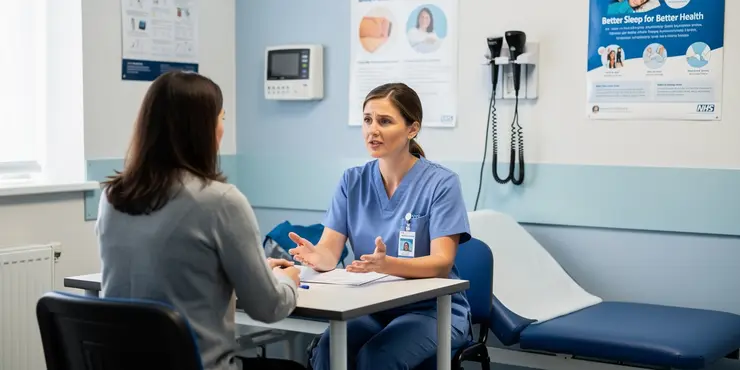
Can alcohol worsen sleep apnea?
Relevance: 81%
-
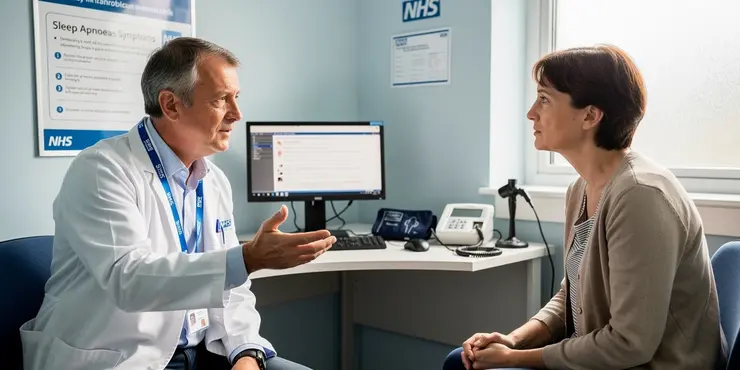
What are common symptoms of sleep apnea?
Relevance: 81%
-
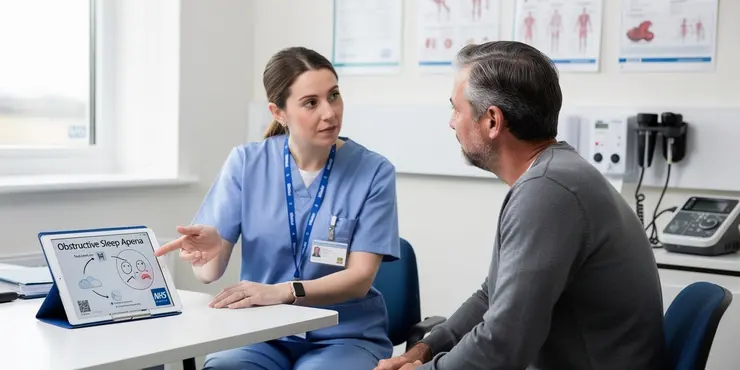
What causes obstructive sleep apnea?
Relevance: 80%
-
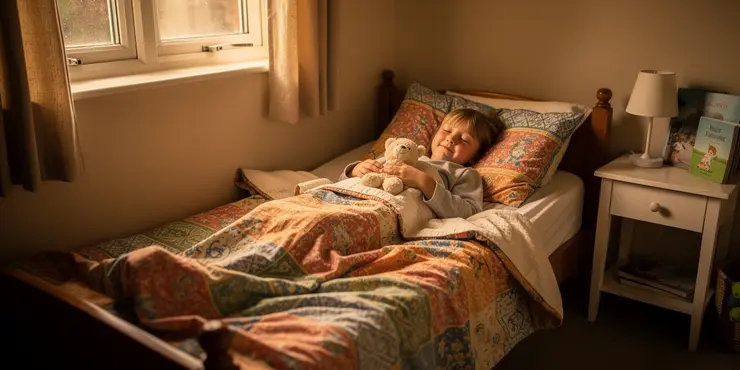
Can children have sleep apnea?
Relevance: 80%
-
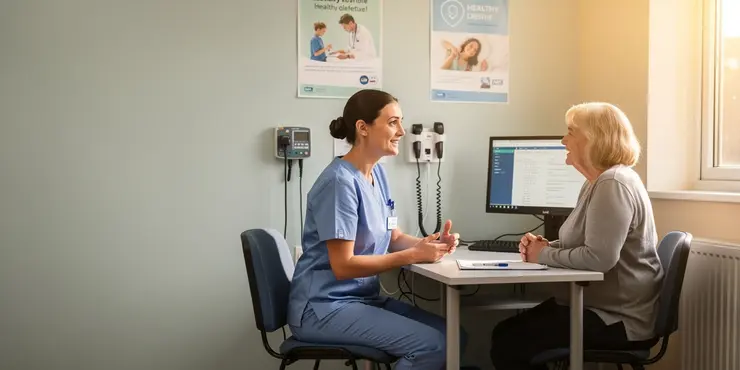
Can weight loss improve sleep apnea?
Relevance: 80%
-
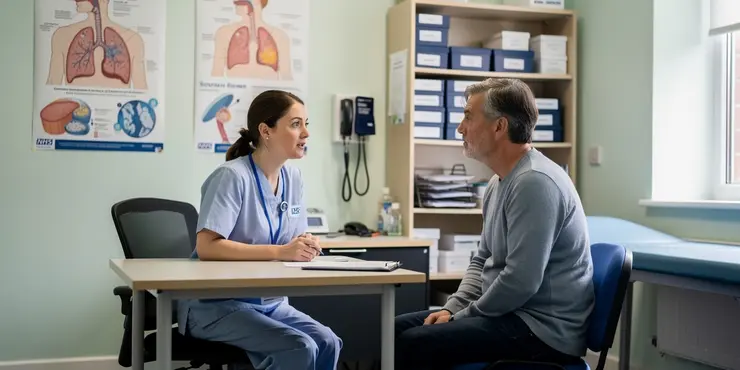
Is snoring always a sign of sleep apnea?
Relevance: 79%
-
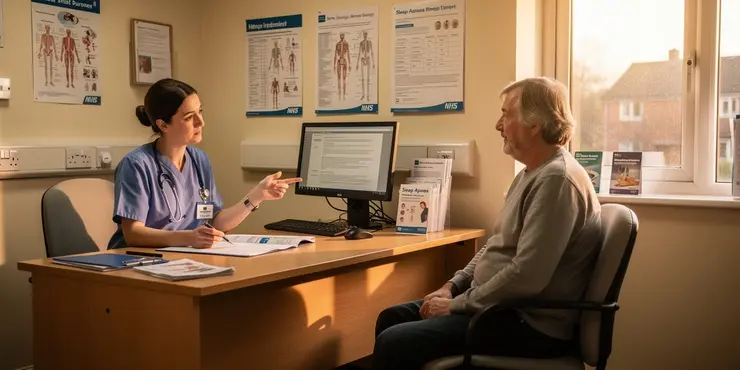
What treatments are available for sleep apnea?
Relevance: 79%
-

What are risk factors for developing sleep apnea?
Relevance: 78%
-
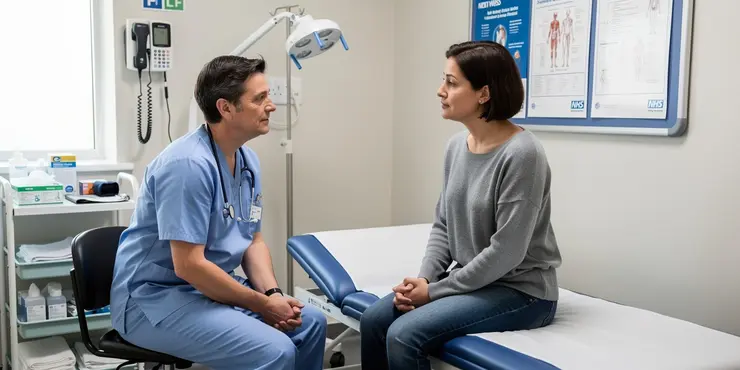
What should I do if I suspect I have sleep apnea?
Relevance: 77%
-
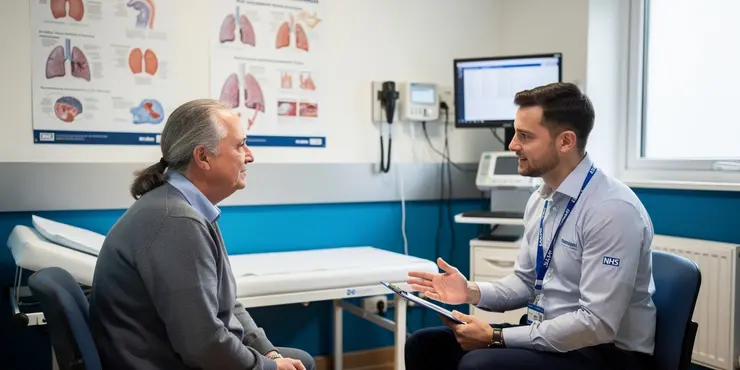
Am I eligible to try the new sleep apnea chip?
Relevance: 76%
-
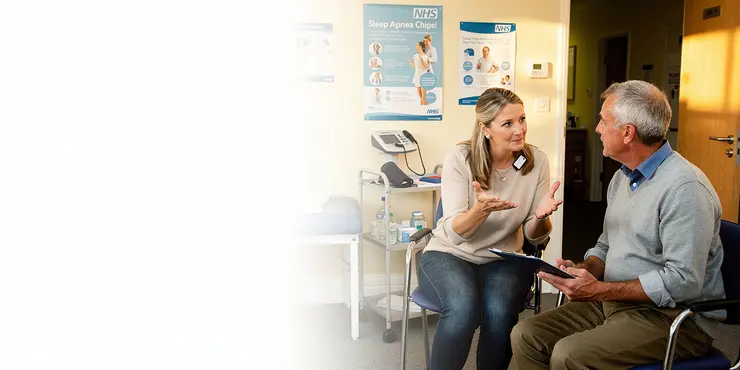
How does the new Sleep Apnea Chip work?
Relevance: 74%
-
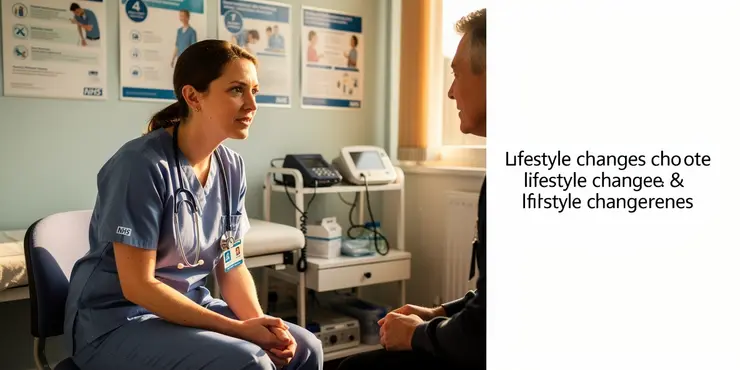
What lifestyle changes can help manage sleep apnea?
Relevance: 73%
-
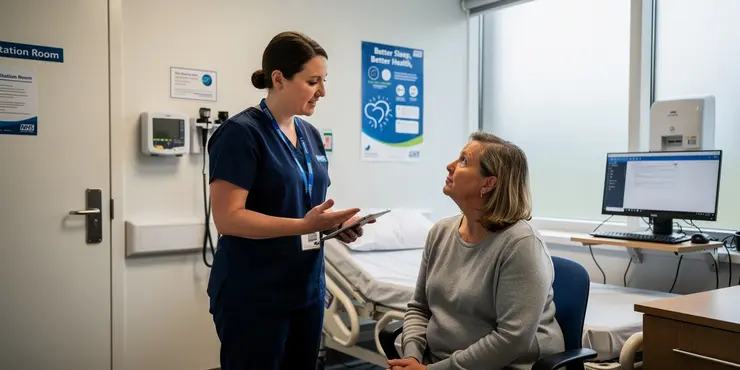
Introduction to obstructive sleep apnoea
Relevance: 62%
-
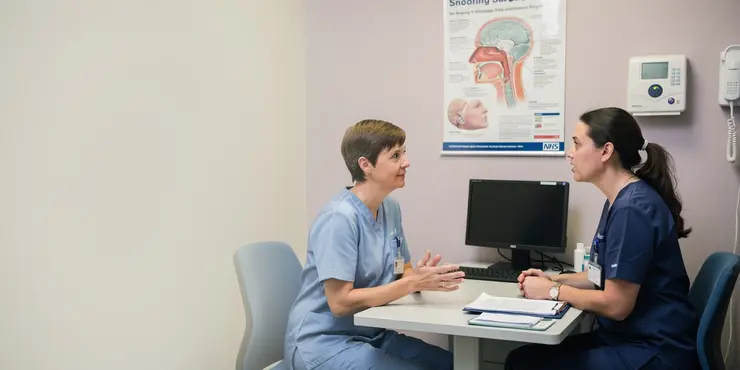
Evidence-Based Interventions: snoring surgery in the absence of Obstructive Sleep Apnoea (OSA)
Relevance: 58%
-
What is sleep apnoea?
Relevance: 44%
-
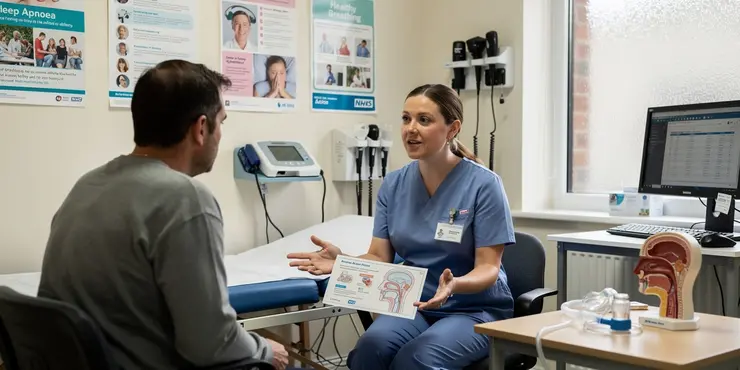
How does central sleep apnea differ from obstructive sleep apnea?
Relevance: 40%
-
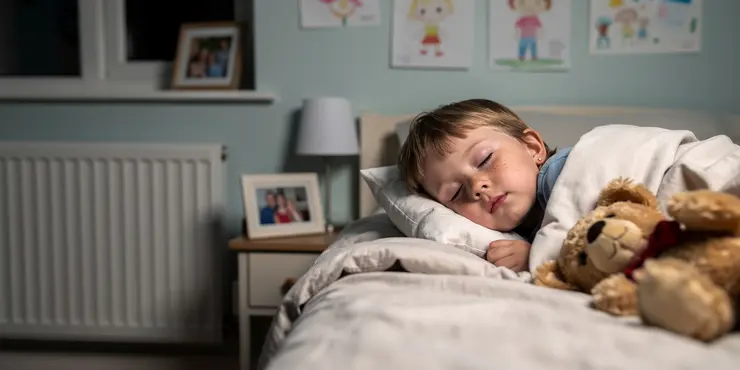
The Importance of Sleep for All Ages
Relevance: 36%
-
How does sleep quality relate to menopause symptoms?
Relevance: 36%
-
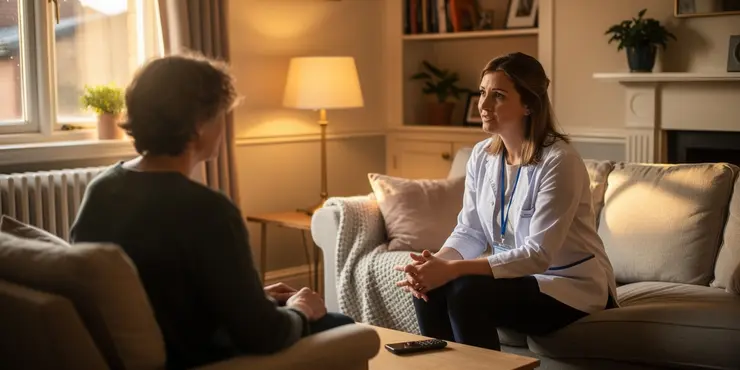
Top Tips to Help You Get a Good Nights Sleep
Relevance: 34%
-
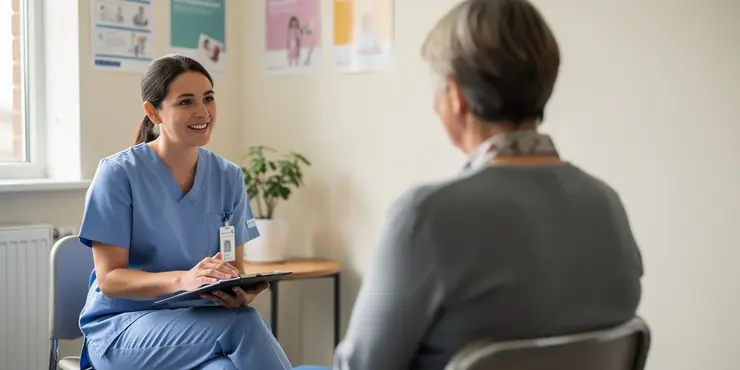
Does screen time affect both sleep onset and sleep maintenance?
Relevance: 34%
-
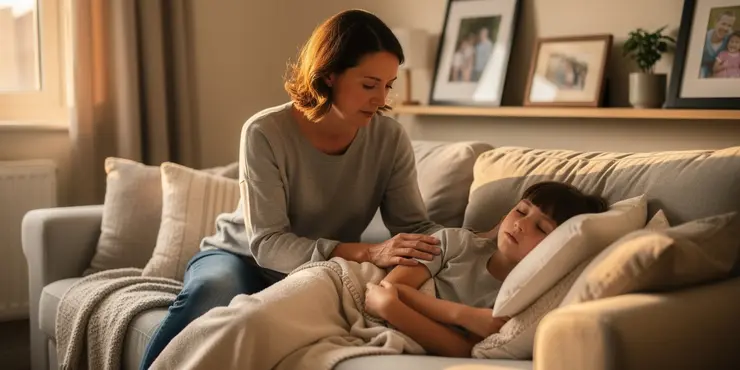
Is it safe to sleep after a concussion?
Relevance: 34%
-
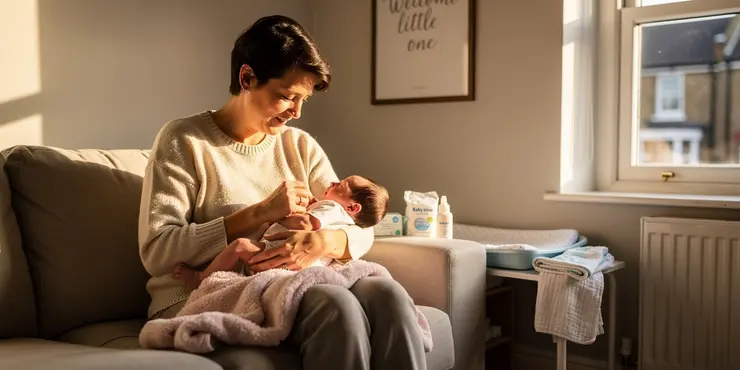
Are baby sleep pillows safe?
Relevance: 33%
-
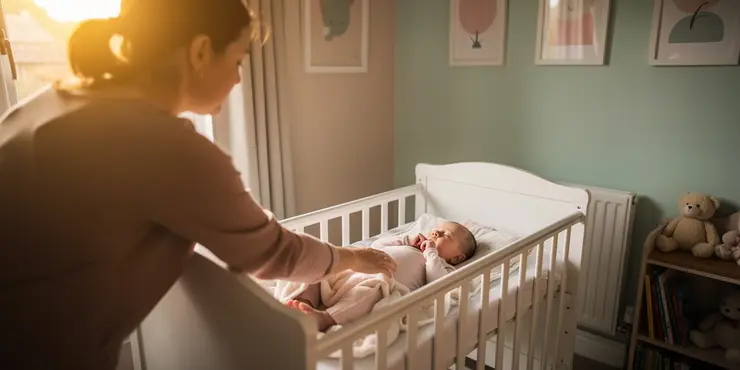
What is the safest sleep environment for an infant?
Relevance: 32%
-
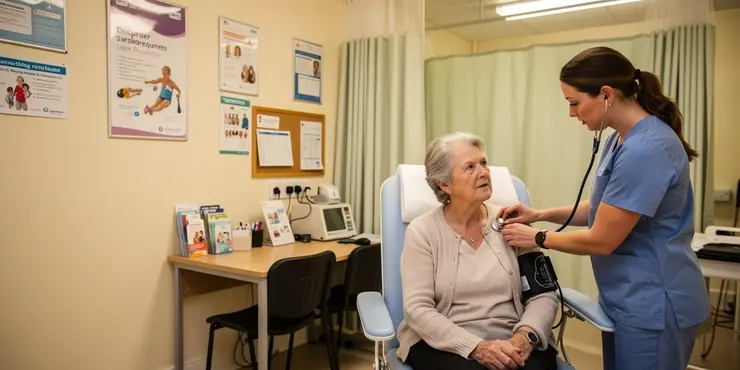
Is it safe to sleep after a concussion?
Relevance: 32%
-
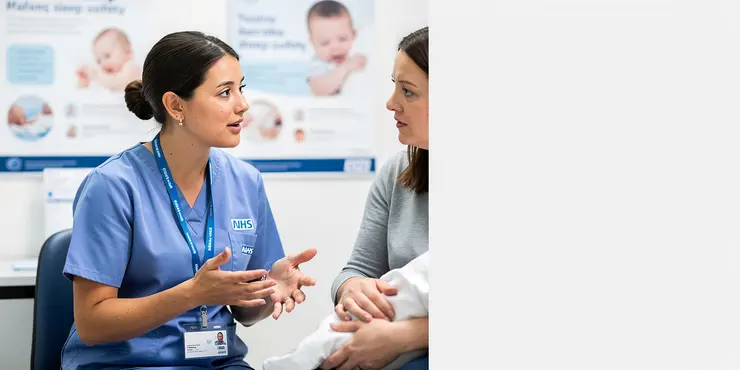
Is it okay to use a baby sleep positioner?
Relevance: 31%
-
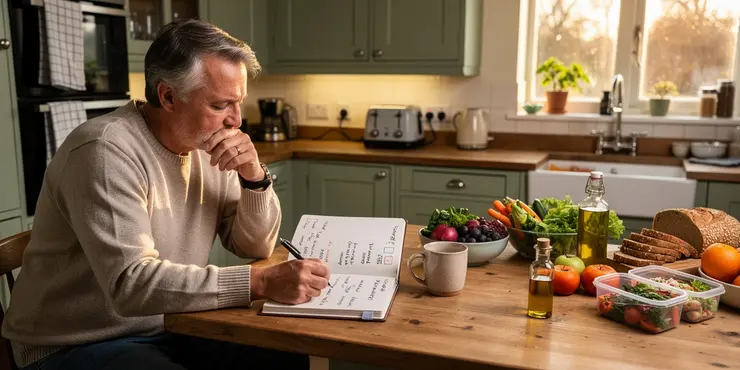
What causes Type 2 Diabetes?
Relevance: 31%
-
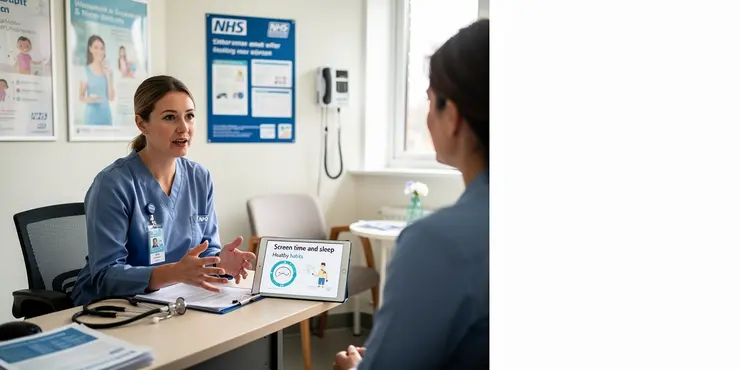
Does screen time impact REM sleep?
Relevance: 31%
-
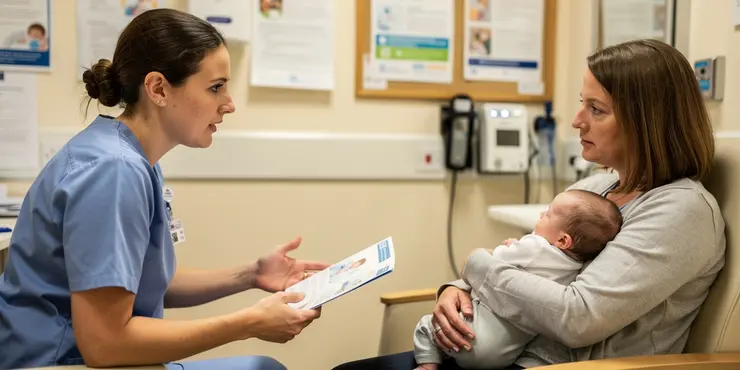
What are the risks associated with baby sleep pillows?
Relevance: 31%
-
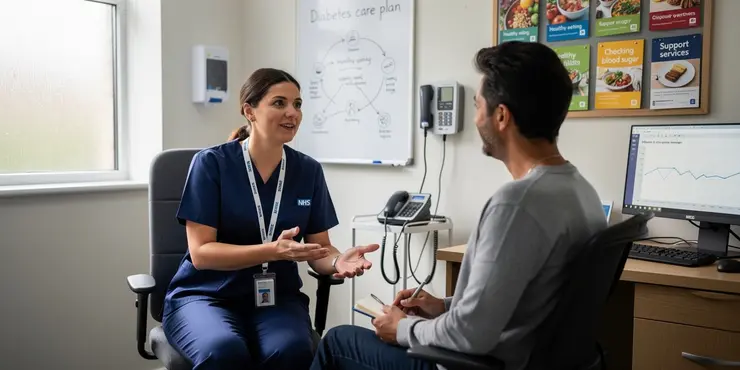
What complications are associated with Type 2 Diabetes?
Relevance: 31%
What are the Main Types of Sleep Apnea?
Sleep apnea is a common sleep disorder characterised by repeated interruptions in breathing throughout the night. These interruptions often lead to fragmented sleep and can result in excessive daytime sleepiness and other health complications. There are three main types of sleep apnea: Obstructive Sleep Apnea (OSA), Central Sleep Apnea (CSA), and Complex Sleep Apnea Syndrome. Understanding the characteristics of each type is essential for accurate diagnosis and effective treatment.
Obstructive Sleep Apnea (OSA)
Obstructive Sleep Apnea is the most prevalent type, affecting millions of individuals worldwide. It occurs when the muscles in the throat relax excessively during sleep, leading to a partial or complete blockage of the airway. This blockage causes pauses in breathing or shallow breaths. Common symptoms include loud snoring, gasping for air during sleep, and frequent awakenings throughout the night. Risk factors for OSA include obesity, age, family history, and certain anatomical features such as a narrow airway or enlarged tonsils. Lifestyle changes, continuous positive airway pressure (CPAP) therapy, or surgical interventions are often recommended for managing OSA.
Central Sleep Apnea (CSA)
Central Sleep Apnea is less common than OSA and differs in its underlying cause. Rather than a physical blockage, CSA involves a communication breakdown between the brain and the muscles that control breathing. In CSA, the brain fails to send the appropriate signals, resulting in pauses in breathing. This type of sleep apnea is often associated with certain medical conditions, such as heart failure or stroke, and can also be a side effect of some medications. Symptoms may include disrupted sleep, shortness of breath upon awakening, and daytime fatigue. Treatment typically involves addressing the underlying medical condition, using adaptive servo-ventilation (ASV) devices, or other forms of therapy tailored to the individual.
Complex Sleep Apnea Syndrome
Complex Sleep Apnea Syndrome, also known as treatment-emergent central sleep apnea, is diagnosed when someone with OSA develops CSA symptoms upon using CPAP therapy. This condition presents with a combination of obstructive and central sleep apnea symptoms. The management of complex sleep apnea may require a multifaceted approach, including adjustments to CPAP settings, utilizing bilevel positive airway pressure (BiPAP) therapy, or considering alternatives such as ASV. This form of sleep apnea highlights the importance of thorough evaluation and personalised treatment plans to address both the obstructive and central aspects of the disorder.
The awareness of these distinct types of sleep apnea is crucial for those experiencing symptoms, as well as healthcare professionals treating the condition. Accurate diagnosis and personalised treatment are key to managing sleep apnea, improving sleep quality, and reducing associated health risks.
What are the Main Types of Sleep Apnea?
Sleep apnea is a sleep problem where people stop breathing many times during the night. This can make sleep worse and make people very tired during the day. There are three types of sleep apnea: Obstructive Sleep Apnea (OSA), Central Sleep Apnea (CSA), and Complex Sleep Apnea Syndrome. Knowing about each type helps doctors find and treat the problem.
Obstructive Sleep Apnea (OSA)
Obstructive Sleep Apnea is the most common type. It happens when the throat muscles relax during sleep. This can block the airway, making it hard to breathe. People with OSA might snore loudly, gasp for air in their sleep, or wake up often at night. Things that make OSA more likely are being overweight, getting older, family history, or having a narrow throat or big tonsils. Doctors might suggest changing habits, using a CPAP machine to help with breathing, or sometimes surgery to help with OSA.
Central Sleep Apnea (CSA)
Central Sleep Apnea is not as common as OSA. It is caused when the brain does not send the right messages to the breathing muscles. This means a person might stop breathing during sleep. CSA can be linked to health problems like heart failure or stroke, or it can happen because of certain medicines. People with CSA might have trouble sleeping, feel short of breath when they wake up, and feel tired during the day. Treatment usually means fixing the health issue, using special machines like ASV, or other treatments that fit the person’s needs.
Complex Sleep Apnea Syndrome
Complex Sleep Apnea Syndrome, also called treatment-emergent central sleep apnea, happens when someone with OSA starts getting symptoms of CSA after using a CPAP machine. This means they have both OSA and CSA. Treating complex sleep apnea might need changing the CPAP machine settings, using a BiPAP machine, or trying ASV machines. It’s important to check carefully and create a treatment plan that fits both problems.
Knowing about these types of sleep apnea is important for people who have symptoms and the doctors who treat them. Getting the right diagnosis and treatment helps people sleep better and stay healthy.
Frequently Asked Questions
What are the main types of sleep apnea?
The main types of sleep apnea are obstructive sleep apnea, central sleep apnea, and complex (or mixed) sleep apnea.
What is obstructive sleep apnea?
Obstructive sleep apnea (OSA) occurs when the muscles in the throat relax excessively and block the airway during sleep.
What is central sleep apnea?
Central sleep apnea (CSA) happens when the brain fails to send appropriate signals to the muscles responsible for controlling breathing.
What is complex sleep apnea?
Complex sleep apnea, also known as treatment-emergent central sleep apnea, is a combination of obstructive and central sleep apnea symptoms.
Which type of sleep apnea is the most common?
Obstructive sleep apnea is the most common type of sleep apnea.
Can sleep apnea be life-threatening?
Yes, sleep apnea can be life-threatening as it can lead to serious health issues like cardiovascular problems, stroke, and high blood pressure.
What are common symptoms of obstructive sleep apnea?
Common symptoms include loud snoring, gasping for air during sleep, daytime sleepiness, and morning headaches.
What are common symptoms of central sleep apnea?
Symptoms may include episodes of cessation of breathing, insomnia, and waking up feeling short of breath.
How is sleep apnea diagnosed?
Sleep apnea is usually diagnosed with a sleep study, also known as polysomnography, which records various physiological parameters during sleep.
What are the treatment options for obstructive sleep apnea?
Treatment options include CPAP therapy, lifestyle changes, oral appliances, and in some cases, surgery.
What treatments are available for central sleep apnea?
Treatments can include adaptive servo-ventilation, use of supplemental oxygen, and addressing any underlying conditions.
Can lifestyle changes help with sleep apnea?
Yes, losing weight, avoiding alcohol, quitting smoking, and sleeping on one's side can help reduce sleep apnea symptoms.
Is snoring always a sign of sleep apnea?
Not always. While snoring is a common symptom of sleep apnea, not everyone who snores has sleep apnea.
Can children have sleep apnea?
Yes, children can have sleep apnea, usually obstructive, often due to enlarged tonsils or adenoids.
What are risk factors for obstructive sleep apnea?
Risk factors include obesity, a family history of sleep apnea, nasal obstruction, and being male.
Is sleep apnea hereditary?
There can be a hereditary component, particularly in obstructive sleep apnea.
Does central sleep apnea affect men more than women?
Yes, central sleep apnea is more common in men than in women.
What devices are used to treat sleep apnea?
Continuous Positive Airway Pressure (CPAP) devices are commonly used to treat obstructive sleep apnea.
Can untreated sleep apnea lead to other health issues?
Yes, untreated sleep apnea can lead to health issues such as hypertension, diabetes, heart disease, and stroke.
How can I reduce my risk of developing sleep apnea?
Maintaining a healthy weight, regular exercise, avoiding alcohol and sedatives, and maintaining good sleep hygiene can help reduce the risk.
What are the main types of sleep apnea?
Sleep apnea is when you have trouble breathing while you sleep. There are three main types:
1. **Obstructive Sleep Apnea (OSA):** This is when something blocks your throat while you sleep.
2. **Central Sleep Apnea (CSA):** This is when your brain forgets to tell your body to breathe.
3. **Complex Sleep Apnea Syndrome:** This is when you have both OSA and CSA.
If you find it hard to understand, it can help to:
- Ask someone to explain it to you.
- Read with a family member or friend.
- Use audiobooks to listen instead of reading.
There are three main types of sleep apnea. They are obstructive sleep apnea, central sleep apnea, and complex sleep apnea. Complex sleep apnea is also called mixed sleep apnea.
What is obstructive sleep apnea?
Obstructive sleep apnea is when you stop breathing for a short time while you are asleep. This happens because something blocks your throat.
When you have it, you might snore loudly. You might also feel very tired during the day because you do not get good sleep at night.
If you think you have this problem, a doctor can help. They might give you a special mask to wear at night to help you breathe better.
Tools that can help:
- Sleep diary: Write down how you sleep each night.
- Ask for help: Talk to a doctor or a family member.
- Relax before bed: Try to be calm and peaceful at bedtime.
Obstructive sleep apnea (OSA) happens when the throat muscles get too relaxed and block the breathing passage during sleep.
What is central sleep apnea?
Central sleep apnea is a problem with sleeping. Your brain forgets to tell your body to breathe when you sleep.
If you have central sleep apnea, you might stop breathing for a short time when you are asleep. This can happen many times during the night.
Central sleep apnea is different from other sleep problems. It is not because something is blocking your throat. It is because your brain is not sending the right signals.
To make sleeping better, try these things:
- Talk to a doctor. They can help you find out more about your sleep problem.
- Use a breathing machine at night. This can help you breathe while you sleep.
- Keep a bedtime routine. Go to bed and wake up at the same time every day.
- Make your room quiet and comfy for sleep.
Central sleep apnea (CSA) happens when the brain does not tell the muscles to breathe properly.
What is complex sleep apnea?
Complex sleep apnea is a problem when someone sleeps.
It is when breathing stops for a short time during sleep. This can happen many times in the night.
Some tips to help:
- See a doctor if you think you have it.
- Use a special machine to help you breathe at night.
- Try to sleep on your side.
Complex sleep apnea is when a person has two kinds of sleep apnea: obstructive and central.
What is the most common kind of sleep apnea?
Obstructive sleep apnea is the most common kind of sleep problem when you stop and start breathing while asleep.
Can sleep problems be very dangerous?
Yes, sleep apnea can be very dangerous. It can cause big health problems like heart troubles, stroke, and high blood pressure.
What are common signs of breathing problems during sleep?
Some people have trouble breathing when they sleep. This is called sleep apnea.
Here are some common signs:
- Loud snoring.
- Stopping breathing for a short time during sleep.
- Waking up a lot at night.
- Feeling very tired during the day.
- Having trouble focusing on things.
If you think you might have sleep problems, talk to a doctor. They can help you feel better.
Try using relaxation tools before bed, like listening to calm music, to help sleep better.
There are some signs to look out for:
- Loud snoring when you sleep.
- Breathing sounds like gasping when you're asleep.
- Feeling very sleepy during the day.
- Having headaches when you wake up in the morning.
Using a bedtime routine can help, like sleeping at the same time each night. You can also try using a white noise machine to sleep better. If you have these problems, ask a grown-up or a doctor for help.
What signs show central sleep apnea?
Central sleep apnea is a sleep problem. It means the brain does not tell the body to breathe while sleeping.
Here are some common signs:
- Stop breathing during sleep
- Feel tired during the day
- Wake up a lot at night
- Snoring
- Headache in the morning
Some tools and tips can help:
- Use a sleeping machine called CPAP
- Talk to a doctor
- Have a regular sleep schedule
- Do breathing exercises
You might stop breathing for a little bit, have trouble sleeping, or wake up feeling like you can't breathe.
How do doctors find out if someone has sleep apnea?
Doctors check if someone has sleep apnea by looking at how they sleep. They use special tools and tests.
Here is how they do it:
- Sleep Study: This is a test where a person sleeps overnight at a special place or uses a take-home kit. Doctors watch their breathing, heart, and other things while they sleep.
- Talk to a Doctor: A doctor asks questions about how a person sleeps and feels during the day.
- Sleep Diary: Writing about sleep times and how rested a person feels can help. They do this for a week or more.
It is important to get help from a doctor if someone has trouble sleeping.
Doctors find out if someone has sleep apnea by doing a sleep study. This is also called polysomnography. It checks different things in your body while you sleep.
What can help if you have trouble breathing when you sleep?
If you stop breathing sometimes when you sleep, there are things that can help:
- CPAP Machine: This is a machine that helps you breathe better when you sleep. It uses a mask on your nose or mouth.
- Mouth Guard: This is a special piece that you wear in your mouth to keep your throat open.
- Healthy Habits: Try sleeping on your side, losing extra weight, or not drinking alcohol before bed.
- Surgery: Sometimes, doctors can help by doing surgery to make the throat bigger.
It is a good idea to talk to a doctor if you have trouble breathing when you sleep. They can help find the best option for you.
Ways to help are using a special machine to help you breathe at night, changing how you live, wearing a mouthpiece, and sometimes having an operation.
What can help with central sleep apnea?
There are different ways to help. They can use special machines to help you breathe better. You might also get extra oxygen to help. It's important to fix any other health problems you have.
Can changing how you live help with sleep apnea?
Do you have sleep apnea? This is when it is hard to breathe during sleep. Changing some things you do every day might help.
- Lose weight: Losing extra weight can make breathing easier.
- Sleep on your side: Try sleeping on your side instead of your back.
- Avoid alcohol and smoking: Try not to drink alcohol or smoke, especially before bed.
- Regular exercise: Doing exercise during the day can help you sleep better at night.
Using some tools can also help with sleep apnea:
- Use a special pillow to keep your head in a good position.
- Try a breathing machine that helps keep your airway open.
Talk to your doctor if you think you have sleep apnea. They can help you find the best way to feel better.
Yes, you can feel better from sleep apnea by doing a few things:
- Lose a little weight
- Don't drink alcohol
- Stop smoking
- Sleep on your side
Does snoring mean you have sleep apnea?
Not everyone who snores has sleep apnea. Snoring is a common sign of sleep apnea, but you can snore and not have it.
Can kids have sleep apnea?
Sleep apnea is when someone has trouble breathing while they sleep.
Yes, kids can have sleep apnea too.
If you think a child has sleep problems, talk to a doctor.
Helpful tools:
- Use a bedtime routine.
- Make the bedroom quiet and dark.
- Read a bedtime story to help the child relax.
Yes, kids can have a problem called sleep apnea. It usually happens when something blocks their breathing. A common cause is when their tonsils or adenoids are too big.
What causes trouble breathing while sleeping?
Some things can make it hard to breathe when you sleep:
- Being overweight.
- Having a large neck.
- Being older.
- Smoking.
- Drinking alcohol before bed.
- Taking medicines that make you sleepy.
If you have trouble breathing at night, talk to a doctor. They can help.
Things that can make sleep problems more likely are:
- Being very overweight.
- If someone in your family has sleep problems too.
- Having a stuffy or blocked nose.
- Being a boy or a man.
Here are some things that might help:
- Try to keep a healthy weight.
- Talk to your family doctor for advice.
- Use a pillow that helps you breathe better at night.
Can sleep apnea run in families?
Sometimes, sleep apnea can be passed down from parents to children. This means it can run in families. If someone in your family has sleep apnea, you might have a higher chance of having it too.
It can help to talk to a doctor if you or someone in your family has sleep apnea. They can give you advice and help you understand more about it.
If reading is hard, you can ask someone to read this with you. You can also use tools like text-to-speech to listen to the information.
Sleep problems like obstructive sleep apnea can sometimes run in families. This means if your parents have it, you might have it too.
Do men get central sleep apnea more than women?
Central sleep apnea can happen to anyone, but it affects men more often than women.
Helpful Tips:
- Talk to a doctor if you have trouble sleeping.
- Keep a sleep diary to track your sleep patterns.
- Try using calming music or sleep apps to help you relax.
Yes, central sleep apnea happens more often in men than in women.
What machines can help with sleep apnea?
Sleep apnea is when you stop breathing for a short time while you sleep. There are machines that can help. Here are some examples:
- CPAP Machine: This is a big word for a machine that helps you breathe at night. It blows air into your nose.
- Dental Devices: These are special mouthpieces. They help keep your airway open.
- Adaptive Servo-Ventilation (ASV): This machine learns how you breathe. It helps keep your breathing regular.
- Positional Therapy Devices: These help you stay in a good sleeping position.
If you think you have sleep apnea, ask an adult to talk to your doctor. They can help find the right machine for you.
CPAP machines help people who have trouble breathing when they sleep. This problem is called sleep apnea.
Can sleep apnea cause other health problems if not treated?
Yes, if sleep apnea is not treated, it can make you sick. It can cause high blood pressure, diabetes, heart problems, and even a stroke.
How can I lower my chances of getting sleep apnea?
To stay healthy, you can do these things:
- Keep a healthy weight.
- Exercise regularly.
- Stay away from alcohol.
- Don't take sleeping pills.
- Have good sleep habits.
These can help you feel better and safer.
Useful Links
This website offers general information and is not a substitute for professional advice.
Always seek guidance from qualified professionals.
If you have any medical concerns or need urgent help, contact a healthcare professional or emergency services immediately.
Some of this content was generated with AI assistance. We’ve done our best to keep it accurate, helpful, and human-friendly.
- Ergsy carfully checks the information in the videos we provide here.
- Videos shown by Youtube after a video has completed, have NOT been reviewed by ERGSY.
- To view, click the arrow in centre of video.
- Most of the videos you find here will have subtitles and/or closed captions available.
- You may need to turn these on, and choose your preferred language.
- Go to the video you'd like to watch.
- If closed captions (CC) are available, settings will be visible on the bottom right of the video player.
- To turn on Captions, click settings .
- To turn off Captions, click settings again.
More Items From Ergsy search
-

What are the main types of sleep apnea?
Relevance: 100%
-

What is sleep apnea?
Relevance: 92%
-

What is sleep apnoea?
Relevance: 92%
-

How common is sleep apnea?
Relevance: 87%
-

Can sleep apnea be cured?
Relevance: 87%
-

Why is sleep apnea dangerous?
Relevance: 87%
-

How is sleep apnea diagnosed?
Relevance: 85%
-

What is complex sleep apnea syndrome?
Relevance: 83%
-

Is CPAP the only treatment for sleep apnea?
Relevance: 83%
-

What is complex sleep apnea syndrome?
Relevance: 82%
-

Does sleep apnea occur only in adults?
Relevance: 82%
-

Can alcohol worsen sleep apnea?
Relevance: 81%
-

What are common symptoms of sleep apnea?
Relevance: 81%
-

What causes obstructive sleep apnea?
Relevance: 80%
-

Can children have sleep apnea?
Relevance: 80%
-

Can weight loss improve sleep apnea?
Relevance: 80%
-

Is snoring always a sign of sleep apnea?
Relevance: 79%
-

What treatments are available for sleep apnea?
Relevance: 79%
-

What are risk factors for developing sleep apnea?
Relevance: 78%
-

What should I do if I suspect I have sleep apnea?
Relevance: 77%
-

Am I eligible to try the new sleep apnea chip?
Relevance: 76%
-

How does the new Sleep Apnea Chip work?
Relevance: 74%
-

What lifestyle changes can help manage sleep apnea?
Relevance: 73%
-

Introduction to obstructive sleep apnoea
Relevance: 62%
-

Evidence-Based Interventions: snoring surgery in the absence of Obstructive Sleep Apnoea (OSA)
Relevance: 58%
-
What is sleep apnoea?
Relevance: 44%
-

How does central sleep apnea differ from obstructive sleep apnea?
Relevance: 40%
-

The Importance of Sleep for All Ages
Relevance: 36%
-
How does sleep quality relate to menopause symptoms?
Relevance: 36%
-

Top Tips to Help You Get a Good Nights Sleep
Relevance: 34%
-

Does screen time affect both sleep onset and sleep maintenance?
Relevance: 34%
-

Is it safe to sleep after a concussion?
Relevance: 34%
-

Are baby sleep pillows safe?
Relevance: 33%
-

What is the safest sleep environment for an infant?
Relevance: 32%
-

Is it safe to sleep after a concussion?
Relevance: 32%
-

Is it okay to use a baby sleep positioner?
Relevance: 31%
-

What causes Type 2 Diabetes?
Relevance: 31%
-

Does screen time impact REM sleep?
Relevance: 31%
-

What are the risks associated with baby sleep pillows?
Relevance: 31%
-

What complications are associated with Type 2 Diabetes?
Relevance: 31%


